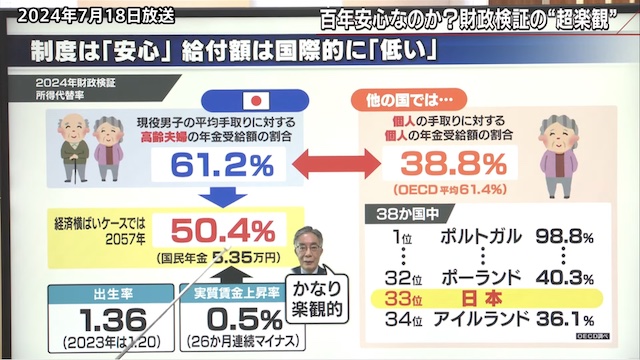TOKYO, Jul 19 (News On Japan) - The Japanese government is considering revising the policy that reduces pensions for those working past age 65. However, a significant proposal to extend the pension premium payment period from age 60 to 65 has been deferred.

This proposal aimed to increase the basic pension by having individuals pay premiums for an additional five years, but political concerns and potential voter backlash led to its shelving.
Japan’s current pension system, a pay-as-you-go model, faces severe fiscal challenges due to an aging population. Unlike Japan’s system, Singapore’s self-contributory pension model, which has received high praise, allows individuals to receive what they have contributed.
The fiscal review recently released highlighted the challenges ahead, with projections showing a decrease in pension amounts by 2057. The government has been gradually increasing premiums but can no longer do so without further burdening the working generation. This situation calls for comprehensive reform to balance the needs of the elderly with the capabilities of the working population to ensure a sustainable and fair pension system.
Source: TBS















